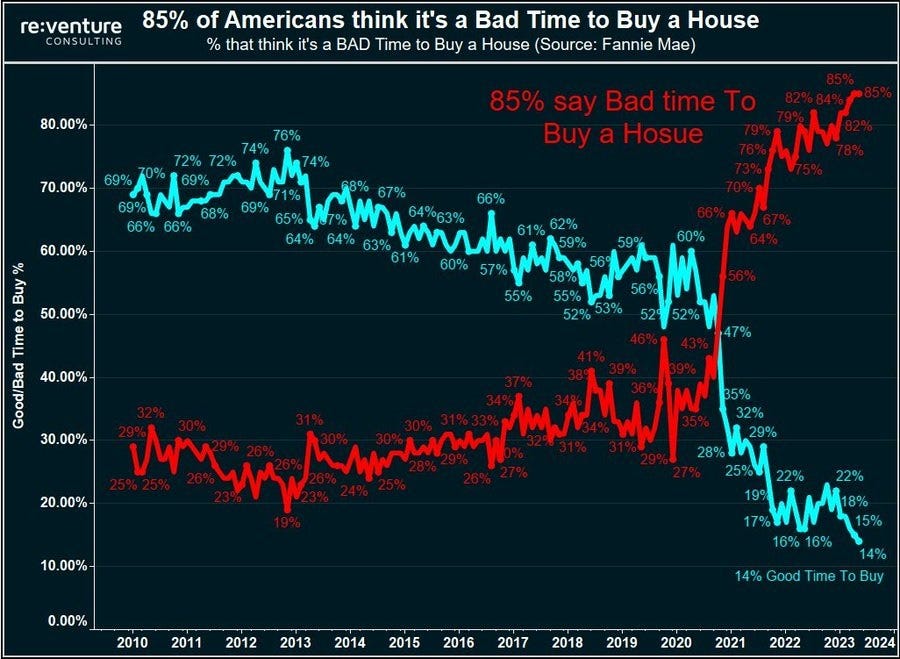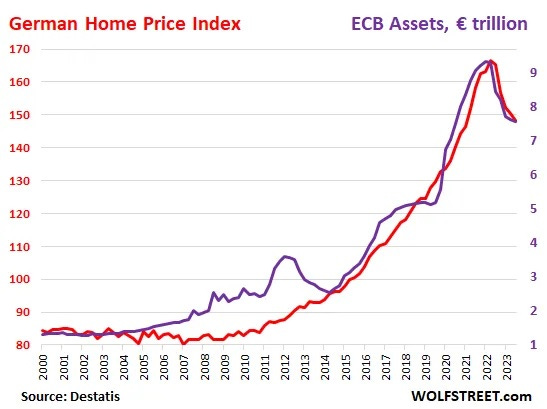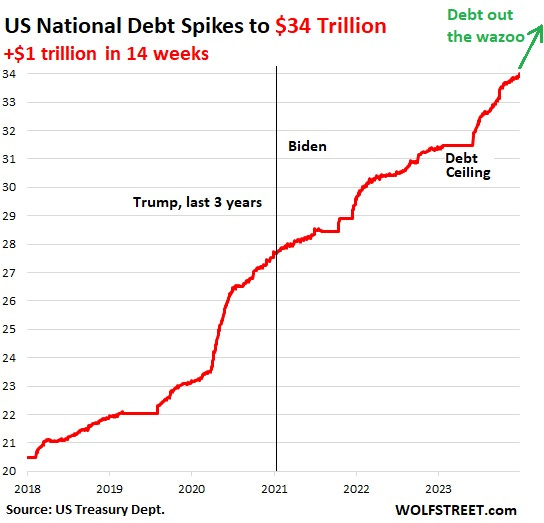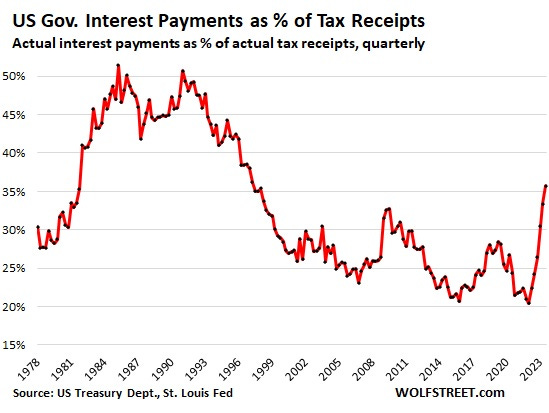Recession Watch: Slightly Lower Interest Rates Will Make Zero Difference

Image source: Pixabay
GDP is still growing, home prices are still high, and the unemployment rate is still low. But under the surface, the bad numbers just keep coming:
U.S. manufacturing sector shrinks for 14th straight month in December
(MarketWatch) - The new-orders index fell 1.2 percentage points to 47.1 in December (below 50 indicates contraction).
Prices fell 4.7 percentage points to 45.2. That’s the biggest drop since May 2023. Inventories were down 0.5 percentage point to 44.3 in December.
Customer inventories dipped back below 50 last month to 48.1 in December.
Only one industry, primary metals, reported growth in December, while 16 reported contractions.
Layoffs picked up in December, concentrated in the computer and electronics, machinery, and food and beverage sectors.
“The survey indicates that conditions in the factory sector remain unusually weak and that output is likely to continue declining for at least a few more months,” said Andrew Hunter, deputy chief U.S. economist at Capital Economics.
U.S. new-home sales plunge in November
(MarketWatch) - Sales of newly built homes in the U.S. plunged in November as elevated mortgage rates took their toll on home buyers.
U.S. new-home sales fell 12.2% to an annual rate of 590,000 in November, from a revised 672,000 in the prior month, the Commerce Department reported Friday.
The pace fell significantly short of expectations on Wall Street. Economists had forecast new-home sales to total 688,000 in November.
New-home sales are at the lowest level since November 2022.
85% of Americans think it’s a bad time to buy a house:

Nike sinks 10% after it slashes sales outlook, unveils $2 billion in cost cuts
(CNBC) - Nike on Thursday unveiled plans to cut costs by about $2 billion over the next three years as it lowered its sales outlook.
The stock fell about 10% after hours. Nike shares were up 4.7% so far this year through Thursday’s close, lagging far behind the S&P 500′s gains for the year. Retailer Foot Locker, which has leaned heavily on Nike products, fell about 7% after hours.
“Last quarter I highlighted a number of risks in our operating environment, including the effects of a stronger U.S. dollar on foreign currency translation, consumer demand over the holiday season and our second half wholesale order books. Looking forward, the impact of these risks is becoming clearer,” finance chief Matthew Friend said on a call with analysts.
Big-city office buildings log 26% price drop from a year ago, report shows
(MarketWatch) - Office-building prices dropped 26% in November from a year ago for properties built in the financial core of U.S. cities, according to a widely used barometer of the commercial real estate market.
The past year has been the toughest on office buildings in central business districts, with aftershocks of the pandemic and higher interest both taking a toll on prices.
“Uncertainty around the future need for office space, as well as the shock of higher mortgage rates, has driven a decline in both sales volume and prices,” according to the MSCI RCA commercial property price index for November.
Overall, commercial real-estate prices fell 8% in November from a year ago, while suburban offices retreated 12.4% and apartment buildings dropped 12.1%, according to the RCA CPPI.
QE Giveth, QT Taketh Away: German Home Prices Tank as ECB’s Balance Sheet Drops by €1.85 Trillion
(Wolf Street) - Germany is a great example of what ultra-low interest rates and massive QE do to home prices: They whip them into frenzy. And what rate hikes and QT do to home prices: they tank them.
So now the ECB’s deposit rate is at 4.0%, up from -0.5% in June 2022. And the ECB has shed €1.85 trillion from its balance sheet since the peak in the summer of 2022, having unwound roughly 40% of the assets it piled on during the pandemic, and 21% of its total assets.
The ECB’s QE came in two forms: Massive and very attractive loans to banks that banks could use to buy assets with; and purchases of all kinds of bonds, including large amounts of corporate bonds. The pandemic-era loans have now been totally unwound; and the bond holdings are being shed at an accelerated pace:
Prices of existing homes in Germany fell fell by 11.2%, The year-over-year drops in Q1, Q2, and Q3 had been the steepest in the data going back to 2000. From the peak in Q2 2022, prices dropped by 12.0%.

Why central banks will panic in 2024
We’ve hit the blow-off stage of the credit supercycle and are now adding trillions of new debt in months rather than years or decades.

The government’s (and everyone else’s) interest payments have gone parabolic, which means supercharged deficits and declining consumer spending, which is another way of saying they’ve lost control. Slightly lower interest rates won’t stop what’s coming.

More By This Author:
Gold Is Now Definitely An Impulse Buy“Just Take It”: America’s New Foreign Policy Slogan Exasperates De-Dollarization
Sea Planes And Safe Landings In 2024



